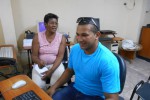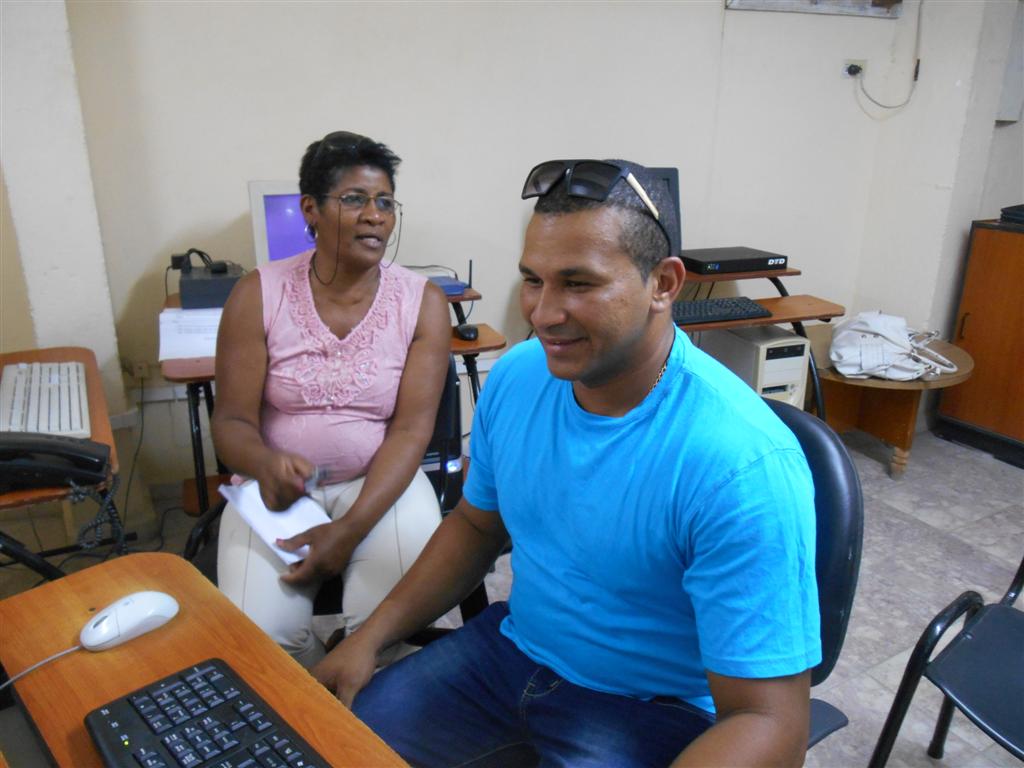 On Tuesday, May 6th, Cuban star outfielder Frederich Cepeda engaged in an online interview with the digital version of Escambray Newspaper, from the Cuban central province of Sancti Spiritus.
On Tuesday, May 6th, Cuban star outfielder Frederich Cepeda engaged in an online interview with the digital version of Escambray Newspaper, from the Cuban central province of Sancti Spiritus.
After having signed out with the Yomiuri Giants, from the Nippon Baseball (NPB), Cepeda readies for his departure and exchanges with some of his fans all over the island, and abroad.
Around a hundred questions reached Escambray via email (cip220@cip.enet.cu), website (www.escambray.cu), and social networks (@escambraycu, @24marlys).
Some went for personal questioning; others inquired him about the Cuban Baseball National Series, about his provincial team: Los Gallos (Roosters), but our English page proposes a summary of the most “spicy” interactions.
Blog Cuba X Dentro: What would you like to change in the Cuban National Series (SNB in Spanish)?
Cepeda: I’d like to return to the 90 games structure, without reinforcements.
Blog Cuba X Dentro: Do you consider the MLB as the highest step in the sport?
Cepeda: Yes, I do. MLB has the greatest talents of the world. Though many leagues have certainly good quality, the majority of their most gifted players ended up in MLB.
Blog Cuba X Dentro: Do you believe in the professionalization of a baseball player beyond the economic incentive? Under the precept that it is not the economy what defines professionalization, do you consider Cuban players as professionals?
Cepeda: Sure, I do; Cubans are professionals beyond the economic incentive. The word defines the job you do, not what you earn.
Guantanamero free: How is Cepeda going to face the decision of being allowed to play in Japanese baseball, as a given opportunity for his results in National Series, or as an alternative to be left out from team Cuba, as it was done with Omar Linares? Do you think your career in the national squad is about to end? How do you see your exclusion from the group that participated in the Caribbean Series?
Cepeda: I think that this decision of going to Japan has to do with the results of my entire career. Cuba has opened to contracts in foreign leagues, and I have the honor of being the first active player to participate in the NPB. I don’t believe this would mean I’m going to be left out from team Cuba; it just depends on my performance in the national championship, as it always has been. As for the Caribbean Series, the manager and the board of the team had their right to choose the players they wanted to face the competition.
Ariel Martínez: Japanese baseball has rules on the amount of foreign players allowed in the roster, which is set in 4. In this case, you are the 5th, and the four who are currently playing are performing well. What I want to know is the contract specifies if you are going to play, because the two position players are doing great at the moment.
Cepeda: I’m well informed on the matter. They told me from the very beginning that I would start in triple A since the series already started two months ago.
Ihosvany: You’ll be the best paid athlete of the Revolution-stage baseball. What’s your opinion on that, and to what extent do you think this may affect your performance inside and outside Cuba? It’s known that in a contract, the 80% goes to the player, the 20% to their representatives (INDER- National Institute of Sport, Physical Education, and Recreation), and some other percent goes to ONAT (National Tax Administration Office). How much net money will you earn? I know Leslie Anderson plays in the same team, so I hope you learn from him, adjust quickly, and make us all proud. Greetings and good luck.
Cepeda: The salary of every person is essential, important, but it always gets a secondary level when it comes to sports. What’s key for me is to play baseball, and doing it well. That’s my main reason for going to Japan. My experience will certainly motivate others, and boost other contracts.
I’m not well informed on the money issue, or in the way situations like mine work. You are right on the terms of the contract, but I still don’t know how much net money, as you say, I’ll earn. Anyway, I repeat, baseball is my thing, the rest is secondary.
As Frederich Cepeda has us used to, he measured every word, did not get off balance and hit roughly the fastballs. At the end, the athlete expressed: “I think this has been a great opportunity to interact with users of the site, and those interested in Cuban baseball. Thanks to all my fans. With all my love, Frederich Cepeda”.
Related articles across the web
 Escambray ENGLISH EDITION
Escambray ENGLISH EDITION







That was a really cool idea, Grande!!! If I would have known about this interview ahead of time, I would have participated since I have a lot of good questions and praises for my favorite baseball player. Way to go Escambray!!!